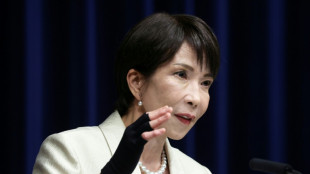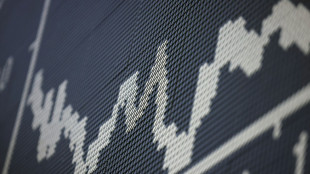

US retail sales beat expectations in August despite tariffs
Retail sales in the United States were hotter than expected in August, government data showed Tuesday, although analysts warned consumers may run out of steam as President Donald Trump's tariffs bite.
Overall sales jumped by 0.6 percent on a month-on-month basis in August, holding steady from July's 0.6-percent pace, the Commerce Department said.
Compared with the same period a year ago, retail sales were up 5.0 percent last month.
Consumer spending is a major driver in the world's biggest economy. With businesses seeing price pressures from Trump's new tariffs, all eyes are on consumers' reactions as additional costs trickle down.
A separate report Tuesday showed that industrial production rose 0.1 percent in August, reversing a 0.4 percent decline in July. This was better than analysts anticipated, too.
In the retail sector, sales at dealers of motor vehicles and parts jumped 0.5 percent from July, while those at restaurants and bars climbed 0.7 percent.
Spending at grocery stores also edged up.
Furniture store sales dropped 0.3 percent from the prior month, while general merchandise stores saw sales dip by 0.1 percent -- with those at department stores in particular falling.
"Retail sales were robust in August, but the outlook for further tariff-driven price hikes and a stagnant labor market suggests this momentum is unlikely to be sustained," said Samuel Tombs, chief US economist at Pantheon Macroeconomics.
But Nationwide chief economist Kathy Bostjancic noted that spending remained "rather broad-based" as consumers forked out for discretionary goods such as those related to hobbies.
While many firms stockpiled products in anticipation of Trump's bevy of new duties, they will have to make new purchases -- likely at higher prices -- as inventory depletes.
Since returning to the presidency, Trump has slapped a 10-percent tariff on goods from almost all trading partners.
In August, he hiked this level to varying higher rates for dozens of economies including the European Union, Japan and Vietnam.
Trump has also targeted certain sector-specific imports like steel, aluminum and automobiles with separate tariff levels.
Economists warn that such duties could fuel inflation but some argue the blow could be one-off.
The levies appear to have a limited impact on inflation for now, although their full effects have yet to materialize.
謝-A.Xiè--THT-士蔑報




